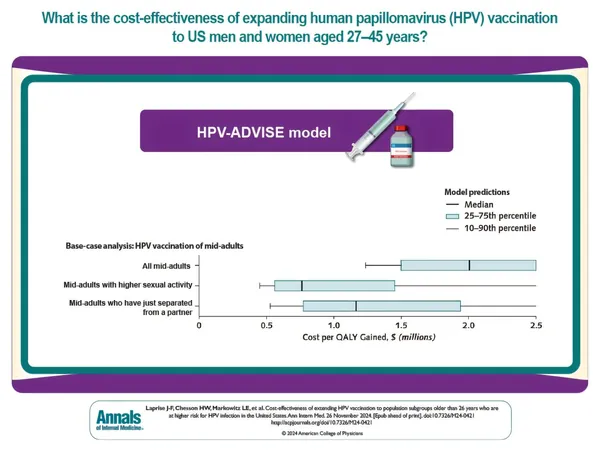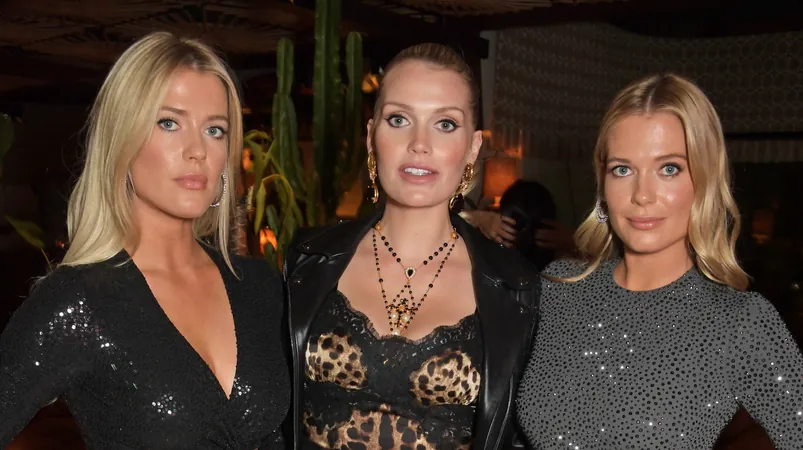
Is It Worth Vaccinating Adults Over 26 Against HPV? New Study Reveals Shocking Findings!
2024-11-26
Author: Charlotte
Introduction
A groundbreaking modeling study reveals that offering HPV vaccinations to individuals aged 27 to 45 is unlikely to be a cost-effective strategy. While certain high-risk subgroups within this age range could see benefits, the overall effectiveness pales in comparison to vaccinating younger individuals, particularly those under the age of 26. This research has just been published in the esteemed Annals of Internal Medicine.
Background
Back in June 2019, the US Advisory Committee on Immunization Practices (ACIP) recommended considering vaccination for adults aged 27 to 45 years, leading researchers from Laval University in Quebec City to delve deeper. Utilizing advanced computer modeling, they assessed the financial viability and the number of vaccinations required to prevent one case of HPV-related cancer if the existing 9-valent HPV vaccination program—currently targeting those aged 9 to 26—were to be extended.
Focus of the Study
The study particularly focused on specific subgroups, including adults exhibiting higher sexual activity and those who have recently ended a long-term relationship. Alarmingly, under every scenario explored, the team found that vaccinating adults aged 27 to 45 was significantly less cost-effective than vaccinating younger individuals. The numbers were revealing: the "number needed to vaccinate" (NNV) was considerably higher for mid-adults than for those aged 26 or younger.
Positive Outcomes for Specific Groups
However, there was a silver lining. The research indicated that vaccinating mid-adult women who are infrequently screened and have higher sexual activity—especially those who have recently split from long-term partners—yielded the best results in terms of cost-effectiveness. This subgroup showed the lowest incremental cost-effectiveness ratio, suggesting a more favorable outcome in preventing HPV infections compared to other categories.
Implications for Public Health
As discussions about HPV vaccination continue, this study raises important questions about the most strategic use of healthcare resources, emphasizing that targeting younger populations may ultimately provide a more effective approach to curbing HPV-related cancers. The findings also highlight the need for tailored vaccination strategies, particularly focusing on high-risk groups within older adults.
Conclusion
Could this reshape our understanding of HPV vaccination? Stay tuned as we uncover more about this crucial public health issue!









 Brasil (PT)
Brasil (PT)
 Canada (EN)
Canada (EN)
 Chile (ES)
Chile (ES)
 España (ES)
España (ES)
 France (FR)
France (FR)
 Hong Kong (EN)
Hong Kong (EN)
 Italia (IT)
Italia (IT)
 日本 (JA)
日本 (JA)
 Magyarország (HU)
Magyarország (HU)
 Norge (NO)
Norge (NO)
 Polska (PL)
Polska (PL)
 Schweiz (DE)
Schweiz (DE)
 Singapore (EN)
Singapore (EN)
 Sverige (SV)
Sverige (SV)
 Suomi (FI)
Suomi (FI)
 Türkiye (TR)
Türkiye (TR)